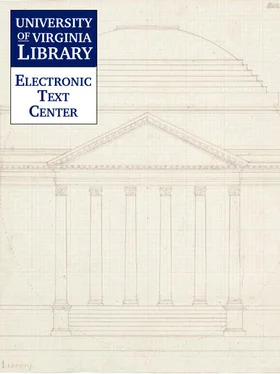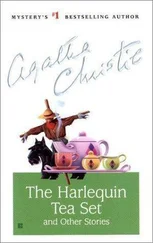H. Wells - The Door in the Wall, and Other Stories
Здесь есть возможность читать онлайн «H. Wells - The Door in the Wall, and Other Stories» весь текст электронной книги совершенно бесплатно (целиком полную версию без сокращений). В некоторых случаях можно слушать аудио, скачать через торрент в формате fb2 и присутствует краткое содержание. Год выпуска: 2000, Издательство: Electronic Text Center. University of Virginia Library., Жанр: Фантастика и фэнтези, на английском языке. Описание произведения, (предисловие) а так же отзывы посетителей доступны на портале библиотеки ЛибКат.
- Название:The Door in the Wall, and Other Stories
- Автор:
- Издательство:Electronic Text Center. University of Virginia Library.
- Жанр:
- Год:2000
- ISBN:нет данных
- Рейтинг книги:5 / 5. Голосов: 1
-
Избранное:Добавить в избранное
- Отзывы:
-
Ваша оценка:
- 100
- 1
- 2
- 3
- 4
- 5
The Door in the Wall, and Other Stories: краткое содержание, описание и аннотация
Предлагаем к чтению аннотацию, описание, краткое содержание или предисловие (зависит от того, что написал сам автор книги «The Door in the Wall, and Other Stories»). Если вы не нашли необходимую информацию о книге — напишите в комментариях, мы постараемся отыскать её.
The Star
A Dream of Armageddon
The Cone
A Moonlight Fable
The Diamond Maker
The Lord of the Dynamos
The Country of the Blind
The Door in the Wall, and Other Stories — читать онлайн бесплатно полную книгу (весь текст) целиком
Ниже представлен текст книги, разбитый по страницам. Система сохранения места последней прочитанной страницы, позволяет с удобством читать онлайн бесплатно книгу «The Door in the Wall, and Other Stories», без необходимости каждый раз заново искать на чём Вы остановились. Поставьте закладку, и сможете в любой момент перейти на страницу, на которой закончили чтение.
Интервал:
Закладка:
THE DOOR IN THE WALL
And Other Stories
BY
H. G. WELLS
WITH PHOTOGRAPHS BY
ALVIN LANGDON COBURN
NEW YORK & LONDON
MITCHELL KENNERLEY
MCMXI
THE DOOR IN THE WALL
I
One confidential evening, not three months ago, Lionel Wallace told me this story of the Door in the Wall. And at the time I thought that so far as he was concerned it was a true story.
He told it me with such a direct simplicity of conviction that I could not do otherwise than believe in him. But in the morning, in my own flat, I woke to a different atmosphere, and as I lay in bed and recalled the things he had told me, stripped of the glamour of his earnest slow voice, denuded of the focussed shaded table light, the shadowy atmosphere that wrapped about him and the pleasant bright things, the dessert and glasses and napery of the dinner we had shared, making them for the time a bright little world quite cut off from every-day realities, I saw it all as frankly incredible. "He was mystifying!" I said, and then: "How well he did it!. . . . . It isn't quite the thing I should have expected him, of all people, to do well."
Afterwards, as I sat up in bed and sipped my morning tea, I found myself trying to account for the flavour of reality that perplexed me in his impossible reminiscences, by supposing they did in some way suggest, present, convey--I hardly know which word to use--experiences it was otherwise impossible to tell.
Well, I don't resort to that explanation now. I have got over my intervening doubts. I believe now, as I believed at the moment of telling, that Wallace did to the very best of his ability strip the truth of his secret for me. But whether he himself saw, or only thought he saw, whether he himself was the possessor of an inestimable privilege, or the victim of a fantastic dream, I cannot pretend to guess. Even the facts of his death, which ended my doubts forever, throw no light on that. That much the reader must judge for himself.
I forget now what chance comment or criticism of mine moved so reticent a man to confide in me. He was, I think, defending himself against an imputation of slackness and unreliability I had made in relation to a great public movement in which he had disappointed me. But he plunged suddenly. "I have" he said, "a preoccupation--"
"I know," he went on, after a pause that he devoted to the study of his cigar ash, "I have been negligent. The fact is--it isn't a case of ghosts or apparitions--but--it's an odd thing to tell of, Redmond--I am haunted. I am haunted by something--that rather takes the light out of things, that fills me with longings . . . . ."
He paused, checked by that English shyness that so often overcomes us when we would speak of moving or grave or beautiful things. "You were at Saint Athelstan's all through," he said, and for a moment that seemed to me quite irrelevant. "Well"--and he paused. Then very haltingly at first, but afterwards more easily, he began to tell of the thing that was hidden in his life, the haunting memory of a beauty and a happiness that filled his heart with insatiable longings that made all the interests and spectacle of worldly life seem dull and tedious and vain to him.
Now that I have the clue to it, the thing seems written visibly in his face. I have a photograph in which that look of detachment has been caught and intensified. It reminds me of what a woman once said of him--a woman who had loved him greatly. "Suddenly," she said, "the interest goes out of him. He forgets you. He doesn't care a rap for you--under his very nose . . . . ."
Yet the interest was not always out of him, and when he was holding his attention to a thing Wallace could contrive to be an extremely successful man. His career, indeed, is set with successes. He left me behind him long ago; he soared up over my head, and cut a figure in the world that I couldn't cut--anyhow. He was still a year short of forty, and they say now that he would have been in office and very probably in the new Cabinet if he had lived. At school he always beat me without effort--as it were by nature. We were at school together at Saint Athelstan's College in West Kensington for almost all our school time. He came into the school as my co-equal, but he left far above me, in a blaze of scholarships and brilliant performance. Yet I think I made a fair average running. And it was at school I heard first of the Door in the Wall--that I was to hear of a second time only a month before his death.
To him at least the Door in the Wall was a real door leading through a real wall to immortal realities. Of that I am now quite assured.
And it came into his life early, when he was a little fellow between five and six. I remember how, as he sat making his confession to me with a slow gravity, he reasoned and reckoned the date of it. "There was," he said, "a crimson Virginia creeper in it--all one bright uniform crimson in a clear amber sunshine against a white wall. That came into the impression somehow, though I don't clearly remember how, and there were horse-chestnut leaves upon the clean pavement outside the green door. They were blotched yellow and green, you know, not brown nor dirty, so that they must have been new fallen. I take it that means October. I look out for horse-chestnut leaves every year, and I ought to know.
"If I'm right in that, I was about five years and four months old."
He was, he said, rather a precocious little boy--he learned to talk at an abnormally early age, and he was so sane and "old-fashioned," as people say, that he was permitted an amount of initiative that most children scarcely attain by seven or eight. His mother died when he was born, and he was under the less vigilant and authoritative care of a nursery governess. His father was a stern, preoccupied lawyer, who gave him little attention, and expected great things of him. For all his brightness he found life a little grey and dull I think. And one day he wandered.
He could not recall the particular neglect that enabled him to get away, nor the course he took among the West Kensington roads. All that had faded among the incurable blurs of memory. But the white wall and the green door stood out quite distinctly.
As his memory of that remote childish experience ran, he did at the very first sight of that door experience a peculiar emotion, an attraction, a desire to get to the door and open it and walk in. And at the same time he had the clearest conviction that either it was unwise or it was wrong of him--he could not tell which--to yield to this attraction. He insisted upon it as a curious thing that he knew from the very beginning--unless memory has played him the queerest trick--that the door was unfastened, and that he could go in as he chose.
I seem to see the figure of that little boy, drawn and repelled. And it was very clear in his mind, too, though why it should be so was never explained, that his father would be very angry if he went through that door.
Wallace described all these moments of hesitation to me with the utmost particularity. He went right past the door, and then, with his hands in his pockets, and making an infantile attempt to whistle, strolled right along beyond the end of the wall. There he recalls a number of mean, dirty shops, and particularly that of a plumber and decorator, with a dusty disorder of earthenware pipes, sheet lead ball taps, pattern books of wall paper, and tins of enamel. He stood pretending to examine these things, and coveting, passionately desiring the green door.
Then, he said, he had a gust of emotion. He made a run for it, lest hesitation should grip him again, he went plump with outstretched hand through the green door and let it slam behind him. And so, in a trice, he came into the garden that has haunted all his life.
It was very difficult for Wallace to give me his full sense of that garden into which he came.
Читать дальшеИнтервал:
Закладка:
Похожие книги на «The Door in the Wall, and Other Stories»
Представляем Вашему вниманию похожие книги на «The Door in the Wall, and Other Stories» списком для выбора. Мы отобрали схожую по названию и смыслу литературу в надежде предоставить читателям больше вариантов отыскать новые, интересные, ещё непрочитанные произведения.
Обсуждение, отзывы о книге «The Door in the Wall, and Other Stories» и просто собственные мнения читателей. Оставьте ваши комментарии, напишите, что Вы думаете о произведении, его смысле или главных героях. Укажите что конкретно понравилось, а что нет, и почему Вы так считаете.












